Request Information
Help us reduce spam submissions.
Doctor of Audiology Degree
Doctor of Audiology Degree
The Doctor of Audiology program only accepts applications through the Communication Sciences and Disorders Centralized Application Service (CSDCAS). Application instructions.
Audiology is the science of hearing and the study of auditory vestibular processes. The audiologist is concerned with the development, anatomy, physiology, and pathology of the auditory and vestibular systems, as well as the evaluation, habilitation/rehabilitation, and psychology of hearing and/or balance impairment. In addition, audiologists provide counseling and training in the use of amplification devices and the remediation of hearing and vestibular disorders.
The Doctor of Audiology (AuD) program at A.T. Still University’s Arizona School of Health Sciences (ATSU-ASHS) is designed to prepare professionals to become skilled in a wide variety of diagnostic, rehabilitative, habilitative, and related areas of the profession and practice of audiology. The AuD program incorporates basic science education with clinical education through a combination of on-campus classes, clinical rotations, and computer-based education. Graduates will be prepared to handle the extensive scope of audiologic care, including the diagnosis and management of auditory and/or vestibular system deficits for all ages, tinnitus management, hearing conservation, and neuroaudiologic examination, as well as the management and business aspects of audiology.
For general inquiries, please contact the Department of Audiology and Speech-Language Pathology at 480.219.6124 or email trorie@atsu.edu.
24-25 and 25-26 Doctor of Audiology Academic CalendarEntry Level Doctor of Audiology Program Strategic Plan Executive Summary (pdf)
Upcoming events

For more information on the AuD program, visit us at these upcoming events or view our Spring 2025 newsletter.
Doctor of audiology students and alumni
Discover from our students and alumni how the Doctor of Audiology program is empowering their careers. Explore more with Audiology Life Moments.
University Catalog+
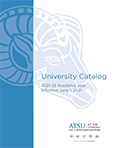
Read the University Catalog to learn more about the Doctor of Audiology program and university.
-
Accreditation +
-
A.T. Still University of Health Sciences is accredited by the Higher Learning Commission
230 S. LaSalle Street, Suite 7-500,
Chicago, IL 60604Phone: 800.621.7440 | Fax: 312.263.7462
Email: info@hlcommission.org The Doctor of Audiology (AuD) education program in audiology (residential) at the A.T. Still University – Arizona School of Health Sciences is accredited by the Council on Academic Accreditation in Audiology and Speech-Language Pathology of the American Speech-Language-Hearing Association, 2200 Research Boulevard, #310, Rockville, MD 20850, Phone 800.498.2071 or 301.296.5700.
The Doctor of Audiology (AuD) education program in audiology (residential) at the A.T. Still University – Arizona School of Health Sciences is accredited by the Council on Academic Accreditation in Audiology and Speech-Language Pathology of the American Speech-Language-Hearing Association, 2200 Research Boulevard, #310, Rockville, MD 20850, Phone 800.498.2071 or 301.296.5700.The accreditation from the Council on Academic Accreditation in Audiology and Speech-Language Pathology of the American Speech-Language-Hearing Association pertains to the residential, entry level Doctor of Audiology Program at A.T. Still University.
Degree-granting authority for the Arizona School of Health Sciences has been given by the Arizona State Board for Private Postsecondary Education, 1400 West Washington Rd., Room 260, Phoenix, AZ 85007. Phone 602.542.5709.
-
Student Outcome Data+
-
Doctor of Audiology On-time Program Completion Rate (4-Year Time Frame)
Period # Completed within Expected Time Frame # Completed Later Than Expected Time Frame # Not Completed % Completed within Expected Time Frame Recent Year (2023-24) 14 1 0 93.33% 1 Year Prior (2022-23) 10 0 0 100% 2 Years Prior (2021-22) 11 0 0 100% 3 Year Average*
97.22% * Calculated as Total # Completed within Expected Time Frame ÷ Total Number of Students
Doctor of Audiology Praxis Examination Pass Rates of Test-takers*
Reporting Period #Taking Exam #Passed Exam % Passed Exam Rate Recent Year (2023-24) 23 19 82.61% 1 Year Prior (2022-23) 21 17 80.95% 2 Years Prior (2021-22) 12 10 83.33% 3 Year Average* 82.41% *The Praxis is the national examination administered by ETS and required by most states for audiology licensure. The data above reflect the highest scores of test takers.
Note: The Praxis examination reporting period is the testing year of examination cycle, not the year of graduation for the test-takers. The data for each reporting period may include test-takers who graduated from the program within the prior 3 years.Doctor of Audiology Employment Rates of Graduates*
Reporting Period Employment Rate in Profession # of Graduates from prior year % of Graduates from prior year Recent Year (2023-24) 10 100% 1 Year Prior (2022-23) 11 100% 2 Year Prior (2021-22) 8 100% 3 Year Average* 100% *The employment rate reporting period is not the year of graduation. The data for each reporting period should represent the individuals who graduated from the program one year prior.
Graduating class of 2028 data
Class size 12 Average age 23 Undergraduate cumulative GPA 3.43 Undergraduate science GPA 3.31 Student to faculty ratio 8:1 Length of program 4 years Revised 08/06/2024
-
Related Doctor of Audiology (AuD) Programs
Audiology Faculty
The Audiology Department has a strong and cohesive group of full-time faculty with areas of expertise covering a wide variety of the topics within the scope of practice of audiology. The faculty have a long history of developing and refining the AuD curriculum at ATSU and supporting students throughout their academic and clinical experiences.
The department is committed to the interdisciplinary model and recognizes its significance in maintaining the quality of graduate education for healthcare professionals. Although the majority of the program’s course offerings are discipline-specific and will be taught by the department’s full-time faculty, students also will receive substantial instruction from experts and qualified practitioners in affiliated disciplines. The department’s adjunct faculty and ATSU core faculty include educators and professionals with advanced degrees and expertise across a range of affiliated disciplines, including human anatomy, speech-language pathology, manual communication, medical imaging, statistics and experimental design, pharmacology, and business administration.
-
Dean +
-
-
 Ann Lee Burch, PT, MPH, EdD, Dean, Arizona School of Health Sciences
Ann Lee Burch, PT, MPH, EdD, Dean, Arizona School of Health Sciences

Phone: 480.219.6061
Email: aburch@atsu.edu
Dr. Ann Lee Burch is the dean of A.T. Still University’s Arizona School of Health Sciences (ATSU-ASHS). Dr. Burch received her doctor of education from Columbia University, Teachers College in 2005. She received her masters of public health from Columbia University, Mailman School of Public Health in 2002 and her masters of physical therapy from Columbia University, College of Physicians and Surgeons in 1989. She was a postdoctoral fellow with the Research Group on Health Disparities at Teachers College, Columbia University. Her BA is in psychology from the University of Rochester.
Prior to her appointment as dean, Dr. Burch served as vice dean for ATSU-ASHS. She served as the chair of the Physical Therapy Department from 2008-January 2012. Prior to ATSU, Dr. Burch was the director of physical therapy at the University of Puerto Rico, Medical Sciences Campus in San Juan, Puerto Rico. She has held administrative and/or faculty positions at the International Center for the Disabled in NY, NY, Mercy College in NY, and Long Island University in Brooklyn, NY.
Dr. Burch’s area of scholarly interest and application of that interest is in knowledge, attitudes, and self-efficacy of health care providers and healthcare professional students towards underrepresented patient/client groups.
Dr. Burch is the author of a Guide to Physical Therapy (Vault Publishers) which was written to increase information access about physical therapy to both high school graduates and re-entry adults. She was a co-investigator on an NIH grant at the University of Puerto Rico exploring the feasibility of an exercise program for breast cancer survivors living in San Juan. Dr. Burch has lived in Symi, Greece, Taipei, Taiwan, Ahmdebad, India and San Juan, Puerto Rico, and is committed to research, teaching and service that further the understanding of the impact of socioeconomic and cultural variables on health.
She was a member of the class of 2014 cohort of Women in Educational Leadership at Harvard Graduate School of Education. In 2017 she was the co-PI on a Centers for Disease Control, Association for Prevention and Teaching grant exploring a population health case study format for teaching and communicating the impact of social determinants of health on health disparities. She was recently appointed a peer reviewer for the Higher Learning Commission.
-
-
-
Vice Dean +
-
-
 Marlene Salas-Provance, PhD, MHA, CCC-SLP
Marlene Salas-Provance, PhD, MHA, CCC-SLP
Dr. Salas-Provance, is professor and vice dean of A.T. Still University’s Arizona School of Health Sciences (ATSU-ASHS). Dr. Salas-Provance received her doctorate in speech science from the University of Illinois Urbana-Champaign. She received her masters of health administration from the University of Missouri School of Medicine-Columbia. She holds both a bachelors and masters in Speech Pathology from New Mexico State University.
Prior to her appointment as vice dean, Dr. Salas-Provance served as associate dean of academic and student affairs for the School of Health Professions at the University of Texas Medical Branch Galveston. She served as assistant dean and chair in the College of Education, Department of Special Education and Communication Disorders at New Mexico State University in Las Cruces, New Mexico and department chair in the Department of Communication Sciences and Disorders at the University of Montevallo (AL). She held faculty positions at Fontbonne College and St. Louis University, in St. Louis, MO.
She has made extensive professional contributions to the American, Speech, Language & Hearing Association (ASHA), serving on the Speech-Language Pathology Advisory Council, member of the Financial Planning Board, and the Multicultural Issues Board. She served as coordinator of ASHA’s Special Interest Group (SIG) 14, Communication Disorders and Sciences in Culturally and Linguistically Diverse populations and was a founding member and coordinator of SIG 17, Global Issues in Communication Sciences and Disorders. She is an ASHA Fellow and received ASHA’s highest awards for “Special Recognition in Multicultural Affairs” and “Outstanding Contributions in International Achievement.”
Dr.Salas-Provance has served as a clinical educator throughout her academic career, especially related to children with cleft lip and palate. She is a member of an international medical team with Rotaplast International and has traveled worldwide for over 15 years to provide clinical services to children with cleft palate. She implemented a program for graduate students in speech pathology to provide clinical services in Spanish to children with cleft palate in Lima, Peru. In addition to Lima, Peru she has provided clinical services in China, Bangladesh, Philippines, El Salvador, Dominican Republic, Guatemala and Venezuela.
Dr. Salas-Provance is coauthor of the textbook Culturally Responsive Practices in Speech-Language and Hearing Science (Plural Publishing, 2019) which meets the needs for training students in healthcare professions regarding practice with individuals from culturally and linguistically diverse populations. Her research is focused on attitudes towards disability by diverse populations and addressing the use of language interpreters during healthcare and educational encounters.
Over the past ten years she has lectured extensively to international audiences, both in English and Spanish, including as invited speaker for the Congreso Internacional en Trastornos de la Comunicacion at Escuela de Fonoaudiologia (Speech Language Pathology / Audiology) de la Universidad de Talca, Chile and for the Department of Otolaryngology, Hospital Nacional Arzobispo Loayza, Lima, Peru, Endoscopic Evaluation of Velopharyngeal Dysfunction. She was invited keynote speaker for the First International Congress in Speech-Language Pathology and Orthodontics in the area of cleft lip and palate in Lima, Peru.
Dr. Salas-Provance was selected for the American Council on Education (ACE) Women’s Leadership Program and attended the National Women’s Leadership Forum in Washington DC (2017) for advancing female executives in higher education.
-
-
-
Chair and Program Director +
-
-
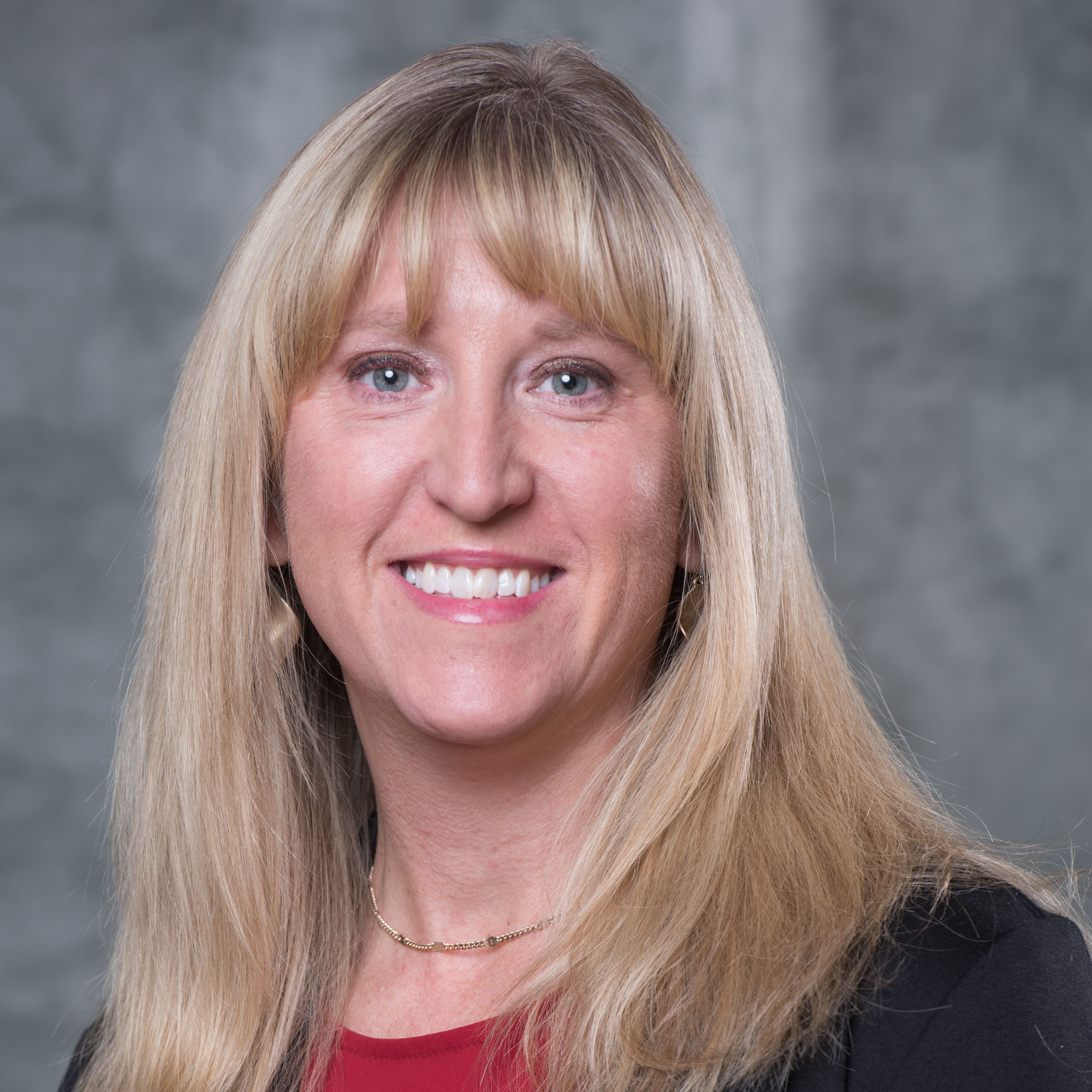 Tabitha Parent-Buck, AuD
Tabitha Parent-Buck, AuD
Professor and Department Chair

Courses taught:
AUDE 5160 Anatomy and Physiology of the Auditory-Vestibular System
AUDE 5260 Human Anatomy and Neuroanatomy
AUDE 5460 Otoacoustic Emissions (co-instructor)
AUDE 6420 Occupational and Environmental Hearing Conservation (co-instructor)
AUDE 9110, 9120, 9130, 9210, 9220, 9230, 9310, 9320 Audiology Grand Rounds
AUDP 7100 Neuroscience and NeuroimagingTabitha Parent-Buck, AuD, is a tenured full professor and chair of the Department of Audiology and Speech-Language Pathology at A.T. Still University-Arizona School of Health Sciences. Dr. Parent-Buck is founding chair of the Department of Audiology and currently serves as program director for the Doctor of Audiology program. She also provides oversight and guidance for the Post-Professional Doctor of Audiology program, AFA Balance & Hearing Institute, and Speech-Language Pathology program.
After obtaining her bachelor’s and master’s degrees in audiology from Purdue University, Dr. Parent-Buck received her doctor of audiology degree (AuD) from Baylor College of Medicine. She has practiced in a variety of clinical settings and worked as a sales representative and trainer in the hearing aid industry. She provided academic and clinical instruction as an assistant professor in the Department of Speech and Hearing Sciences at the University of New Mexico where she was recognized for teaching excellence.
Dr. Parent-Buck has published and presented on hearing aid technology, otoacoustic emissions, vestibular evaluation, pharmacology, neuroanatomy, genetics, and the AuD movement. Dr. Parent-Buck is a past president of the Academy of Doctors of Audiology and former board member of the Audiology Foundation of America. She has been a member of the American Academy of Audiology since 1991 and has served on the Convention Special Events Subcommittee and Task Force on Licensure and Payment Issues of Audiology Externship Students.
-
-
Audiology Full-Time Faculty and Staff +
-
-
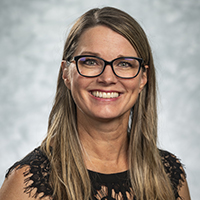 Shelley Baltodano, AuD
Shelley Baltodano, AuD
Assistant Professor and Clinical Coordinator
Read Bio CloseCourses taught:
AUDE 5490 Audiology Clinical Simulation Module
AUDE 6450 Amplification III: Implantable Devices (co-instructor)
AUDE 7150 Amplification IV: Hearing Assistive Technology
AUDE 7260 Basic Principles of Medical ImagingShelley Baltodano, AuD, is an assistant professor and clinical coordinator for the Department of Audiology and Speech-Language Pathology at A.T. Still University’s Arizona School of Health Sciences (ATSU-ASHS). Dr. Baltodano received her bachelor of science degree in education from the University of South Carolina, master of science degree in audiology from the University of Alabama, and doctor of audiology degree from ATSU-ASHS. Dr. Baltodano specializes in implantable hearing devices and aural rehabilitation. With 22 years’ experience in clinical practice, she has spent much of her career in collaboration with world-renowned otologists, restoring hearing to the hearing-impaired population. Professionally, Dr. Baltodano has worked in private practice; directed the Audiology department at Arizona Hearing Center in Phoenix, Arizona; served on the Acoustic Neuroma team at Barrow Neurological Institute; and served as program manager for a multi-hospital newborn hearing screening program. She developed the educational training and clinical protocols for the newborn hearing screening program, tracked follow-up care, and reported results to the Early Hearing Detection and Intervention program. She refined cochlear implant (CI) evaluation and rehabilitation protocols for a local otologist and is working in collaboration with the Cochlear Provider Network to bring CI to ATSU through the AFA Balance & Hearing Institute.
-
 Elton L. Bordenave, PhD, MEd
Elton L. Bordenave, PhD, MEd
Associate Professor and Director, A.T. Still University Center for Resilience in Aging
Read Bio Close
Courses taught:
AUDE 6330 Practice Development I
AUDE 7230 Practice Development IIElton L. Bordenave, PhD, MEd is an associate professor in the Department of Audiology and Speech-Language Pathology at A.T. Still University’s Arizona School of Health Sciences (ATSU-ASHS). Dr. Bordenave received his bachelor of business administration from Baylor University; his master of education from Grand Canyon University and his doctor of philosophy in business administration from Northcentral University. Dr. Bordenave teaches healthcare administration and regulation core courses. He has earned an advanced certification in healthcare compliance. His areas of professional activity and expertise are healthcare finance, regulatory compliance, healthcare information systems, and risk management. Dr. Bordenave is the director of the A.T. Still Aging Studies Project on the Arizona campus. In that role he oversees interdisciplinary service learning programs aimed at fostering culturally proficient, service-oriented graduates. During his tenure in that role, Aging Studies Project programming has received awards locally, as well as national recognition. His educational and scholarly contributions include peer-reviewed publications and professional presentations.
-
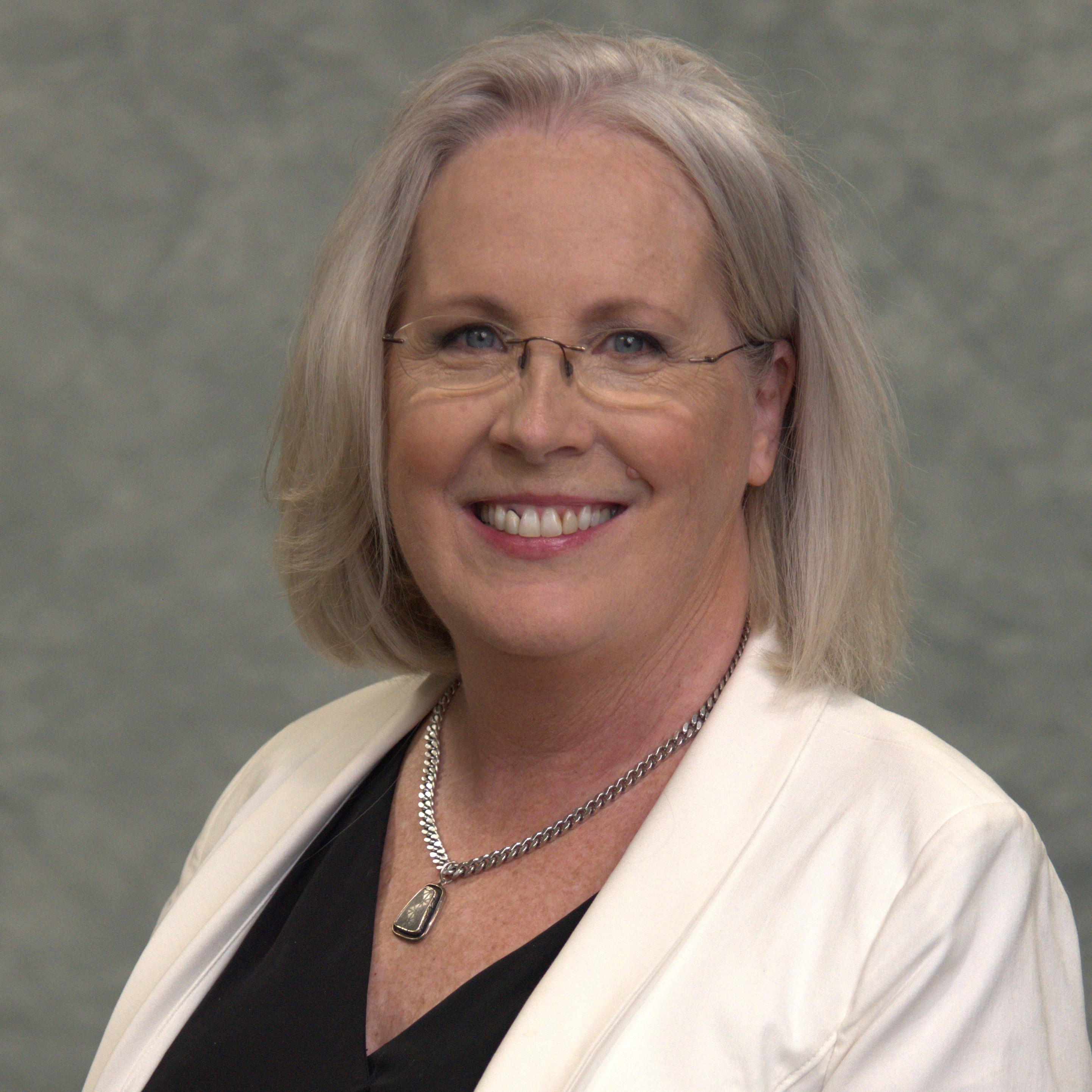 Tricia Dabrowski, AuD
Tricia Dabrowski, AuD
Associate Professor and Director, Clinical Education
Read Bio Close
Courses taught:
AUDE 5450 Amplification I
AUDE 6150 Amplification II
AUDE 6310 Audiological Rehabilitation for Adults
AUDE 9330, 9410, 9420 Audiology Grand RoundsTricia Dabrowski, AuD, is an associate professor, holding the title of director of clinical education for the Doctor of Audiology Program, in the Department of Audiology and Speech-Language Pathology at A.T. Still University’s Arizona School of Health Sciences (ATSU-ASHS). Dr. Dabrowski earned her bachelor of science degree from East Stroudsburg University, master of audiology degree from Hahnemann University, and doctor of audiology degree from Salus University’s George S. Osborne College of Audiology (OCA).
Professionally, Dr. Dabrowski directed several audiology practices in southeastern Pennsylvania prior to her appointment as assistant professor at OCA. She held the titles of director of Pennsylvania Ear Institute and coordinator of internal clinical education while at OCA, developing the on-campus clinical training program for the college and establishing the Pennsylvania Ear Institute as a regional center of excellence.
As director of clinical education for the Audiology Program, Dr. Dabrowski is responsible for overseeing the clinical education program and management of nonlocal and year 4 clinical rotations. Additionally, she is the lead instructor in multiple courses. Dr. Dabrowski instructs and mentors students as they develop clinically relevant skills in the areas of adult diagnostic assessment, hearing instrument fitting, verification and validation, aural rehabilitation, and practice management.
In addition to her work through the University, Dr. Dabrowski has assisted hearing instrument manufacturers with clinical research data collection and authored several articles and book chapters relating to clinical practice, education, and unusual case studies. She has held the titles of secretary and treasurer to the Academy of Doctors of Audiology. In addition, she is the past president of the Scott Haug Foundation board of directors and currently sits on the Arizona Audiology Coalition Board.
-
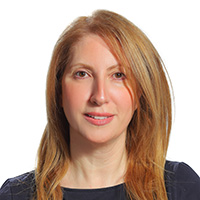 Soha Garadat, PhD
Soha Garadat, PhD
Associate Professor
Read Bio CloseCourses taught:
AUDE 5230 Professional Roles & Responsibilities
AUDE 6140 Pediatric Audiology
AUDE 6450 Amplification III: Implantable Devices
AUDE 6220 Tinnitus, Hyperacusis & Misophonia: Evaluation and Treatment
AUDE 7330 Ethics in AudiologySoha Garadat, PhD, is an associate professor in the Department of Audiology and Speech-Language Pathology at A.T. Still University Arizona School of Health Sciences (ATSU-ASHS). Dr. Garadat received her master’s degree in clinical audiology and PhD in audiology/physiology from the University of Wisconsin – Madison. She completed a three-year postdoctoral fellowship supported by NIH/NIDCD T32 and F32 grants at the Kresge Hearing Research Institute at the University of Michigan – Ann Arbor. Her main areas of research interest focused on improving cochlear implantation outcomes and understanding some of the factors underlying variability in performance. She has also authored/co-authored numerous publications in peer-reviewed journals. Dr. Garadat worked as a cochlear implant consultant for many years. She has provided academic instruction as an associate professor at the University of Jordan and the University of Southern Mississippi.
-
 Melanie A. Gibson, MA
Melanie A. Gibson, MA
Instructional Designer and Program Manager
Read Bio Close
Melanie Gibson, MA, is the instructional designer and program manager for the Department of Audiology and Speech-Language Pathology at ATSU-ASHS. Mrs. Gibson received her bachelor’s degree from Ashford University in March of 2017 and her master’s degree from Ashford University in teaching and learning with technology in April of 2018. She provides support to the Audiology program faculty, adjunct faculty, director, chair, and students. Mrs. Gibson serves in a leadership role in developing creative strategies to teach faculty and students to use the University’s online learning management systems and chat platform as well as implementing best practices for teaching and learning in the online environment. She efficiently manages the creation and updating of online courses.
During her time as a student at Ashford University, Gibson designed content for adjunct instructors and content experts to improve how content is delivered in an online environment. She obtained knowledge of learning styles, best practices in online education, instructional design, using technology tools to support various learning styles, and strategies for increasing student engagement and retention of content.
As the program manager at ATSU-ASHS, Mrs. Gibson co-designed the orientation/training course for the content experts and course facilitators for the online Post-Professional Doctor of Audiology program and the template for all courses in the Post-Professional Doctor of Audiology program. She has experience working with multiple learning management systems, including Blackboard and Canvas. She is a lifelong learner and continually researches and learns about other technologies to enhance teaching and learning.
-
 Troy D. Hale, AuD
Troy D. Hale, AuD
Associate Professor
Read Bio Close
Courses taught:
AUDE 6260 Auditory Evoked Responses and Neurodiagnostics I
AUDE 6370 Vestibular Assessment & Treatment I
AUDE 6470 Auditory Evoked Response and Neurodiagnostics II (co-instructor)
AUDE 7170 Vestibular Assessment & Treatment IITroy Hale, AuD, is an associate professor in the Department of Audiology and Speech-Language Pathology at A.T. Still University's Arizona School of Health Sciences (ATSU-ASHS). From 2011 to 2019, Dr. Hale was the founding director of the AFA Balance & Hearing Institute, ATSU's private practice model audiology clinic. He received his bachelor of science degree from Arizona State University and doctor of audiology degree from ATSU-ASHS. Dr. Hale is also a faculty audiologist at Barrows Neurological Institute. He has extensive experience in hospital and private practice settings and has mentored graduate students from a variety of health disciplines. Dr. Hale's professional interests include neuroscience, evoked potentials, vestibular assessment/rehabilitation, practice management, and interprofessional collaboration. Dr. Hale has co-authored scholarly research on vestibular assessment and treatment and presented at several national conventions.
-
 Zarin Mehta, PhD
Zarin Mehta, PhD
Associate Professor
Read Bio Close
Courses taught:
AUDE 5310 Embryology and Genetic Conditions
AUDE 5410 Acquired Auditory-Vestibular Disorders
AUDE 6120 Pharmacology and Ototoxicity
AUDE 6240 (Central) Auditory Processing Disorders: Assessment and Management
AUDE 6470 Auditory Evoked Response and Neurodiagnostics II (co-instructor)
AUDE 7220 Advances in Audiologic CareZarin Mehta, PhD, is a tenured associate professor in the Department of Audiology and Speech-Language Pathology at A.T. Still University’s Arizona School of Health Sciences. She received her master’s degree in audiology from the University of Kansas (KU) and her doctoral degree was conferred by Wichita State University (WSU). She also obtained a degree in medicine from the Dow Medical University, Karachi, Pakistan. Her previous positions include clinical supervisor in audiology at KU, assistant professor at WSU, and clinical associate professor at Arizona State University (ASU), where she also chaired the audiology admissions and program committee. She has abundant teaching experience in many areas within the profession of audiology, but her primary areas of interest continue to be auditory disorders, speech perception across the life span, and genetics of deafness and hearing impairment. Dr. Mehta currently chairs ATSU’s Audiology Admissions Committee. She also chairs accreditation site visits for the Council on Academic Accreditation in Audiology and Speech-Language Pathology of the American Speech-Language-Hearing Association (ASHA), is a reviewer for two professional journals, and serves on convention committees for ASHA and the American Academy of Audiology. She has presented consistently at the national and state level since 1999. Additionally, Dr. Mehta is the author of several peer-reviewed and invited publications and is the recipient of several grants, including a four-year Personnel Training Grant from the U.S. Department of Education to train pediatric audiologists at ASU.
-
 Stacy Neal
Stacy Neal
Patient Services Coordinator/Administrative and Operations Support, AFA Balance & Hearing Institute
Read Bio Close
Stacy Neal joined the AFA Balance & Hearing Institute in January 2013. Stacy brings over 30 years of service skills to the AFA Institute. Her primary duties are in assisting patients in appointment scheduling, insurance verification, referral coordination, billing, and collections. Stacy also assists the director in the administrative responsibilities of the clinic.
-
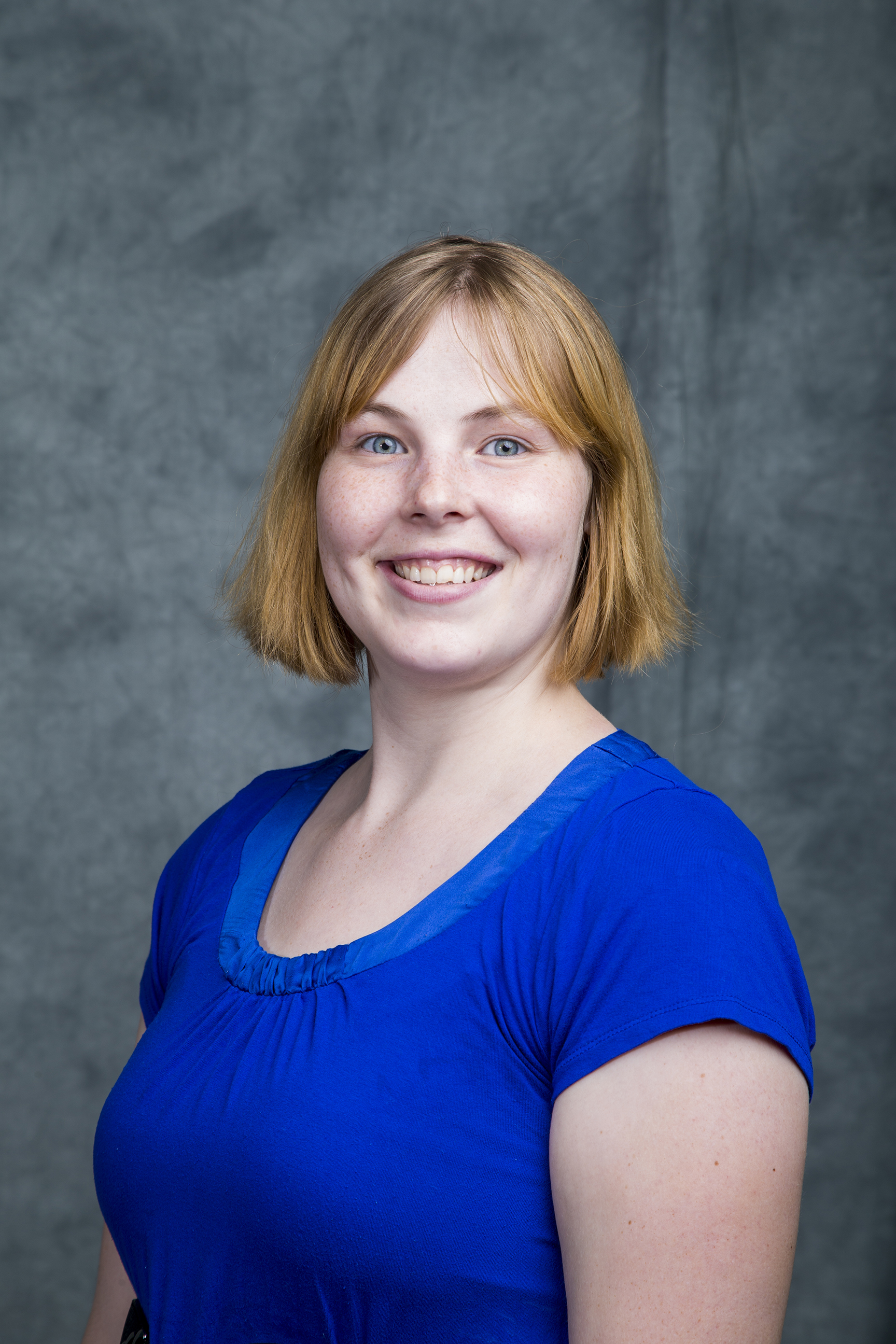 Elizabeth Palmer, AuD
Elizabeth Palmer, AuD
Assistant Professor and Interim Director,
AFA Balance & Hearing Institute
Read Bio Close
Elizabeth Palmer, AuD, is an assistant professor in the Department of Audiology and Speech-Language Pathology and audiologist at the AFA Balance & Hearing Institute at A.T. Still University’s Arizona School of Health Sciences (ATSU-ASHS). Dr. Palmer received her bachelor’s degree in exercise physiology from Brigham Young University-Idaho, a graduate certificate in communication disorders from Lambton College, and her doctor of audiology degree from ATSU-ASHS. She previously worked as adjunct faculty, assisting with laboratory teaching for AUDE 5110 Human Anatomy and Neuroanatomy and AUDE 6220 Tinnitus, Hyperacusis & Misophonia: Evaluation and Treatment. Dr. Palmer provides patient care and serves as a preceptor for audiology students at the AFA Balance & Hearing Institute. The AFA facility is a teaching and clinical center for excellence for the University. Previously, Dr. Palmer worked at Enticare, a medical clinic specializing in hearing and balance diagnostics and treatment. Dr. Palmer’s professional interests include anatomy, neuroscience, diagnostics, vestibular assessment, psychology, practice management, and a passion for teaching. -
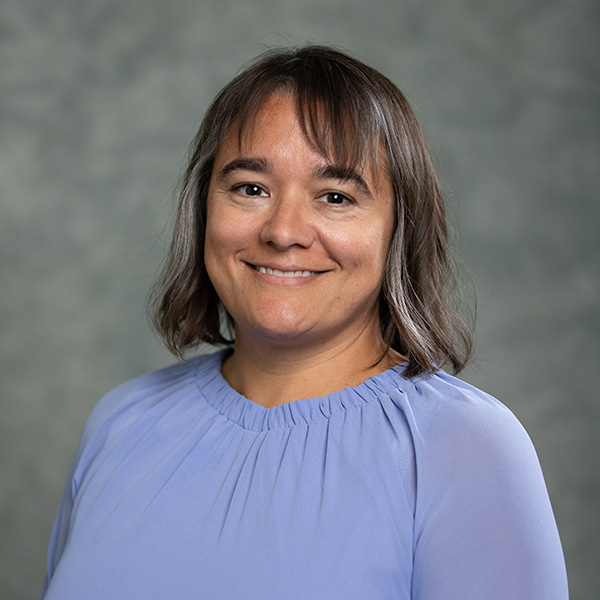 Teri Rorie
Teri Rorie
Program Manager
Read Bio Close
Teri Rorie is the Program Manager in the Department of Audiology and Speech-Language Pathology at A.T. Still University’s Arizona School of Health Sciences (ATSU-ASHS). Mrs. Rorie assists the department chair and faculty with administrative needs for the entry-level and online post-professional Doctor of Audiology programs. She works closely with the audiology admissions committee to process student applications and acceptance paperwork and with the audiology clinical coordinators to ensure clinical requirements are met. Mrs. Rorie helps with the ATSU Student Academy of Audiology chapter during fundraising activities and other events. In addition, she completed her Audiologist Assistant Training in April 2019 with the Audiology Academy, and utilizes her newly acquired skills at the AFA Balance & Hearing Institute and to assist in hands-on labs during some clinical courses. -
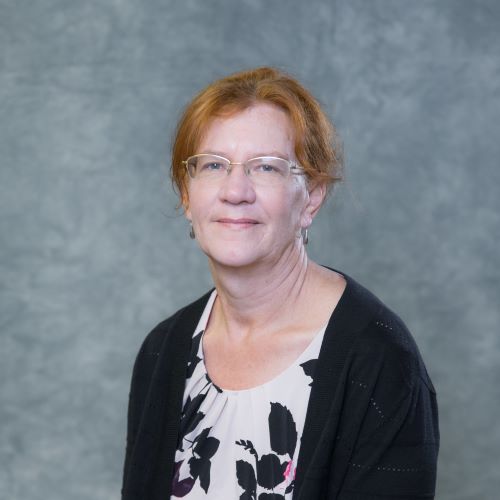 Kimberly Skinner, AuD, PhD
Kimberly Skinner, AuD, PhD
Associate Professor
Read Bio CloseCourses taught:
AUDE 5140 Auditory Science
AUDE 5240 Audiology Diagnostics I
AUDE 5330 Acoustics of Speech
AUDE 5340 Audiology Diagnostics II
AUDE 5440 Cognition and Speech Perception
AUDE 6210 Counseling in Audiology
AUDE 7440 Hearing Loss and Healthy AgingKimberly Skinner, AuD, PhD, is an associate professor in the Department of Audiology and Speech-Language Pathology at A.T. Still University’s Arizona School of Health Sciences (ATSU-ASHS). Dr. Skinner received her master’s degree in audiology from California State University at Sacramento, her doctor of audiology degree from ATSU-ASHS, and her doctor of philosophy degree from Indiana University. After 18 years in private practice, Dr. Skinner returned to school to pursue a research doctorate in speech and hearing sciences. Her dissertation work involved aging effects on behavioral measures of listening effort. She loves to bridge the clinic-research gap, and her interests include psychoacoustics, aging and cognition, amplification, ethics, and business practices. She values professional and community service and has served as president of the California Academy of Audiology and of two different Rotary clubs. Her honors include the Council of Academic Programs in Communication Sciences and Disorders PhD dissertation scholarship. Dr. Skinner has taught doctor of audiology courses for Indiana University and online for ATSU-ASHS. She loves being part of students’ learning and growth and witnessing those “aha!” moments when students understand a difficult concept. Her research and scholarly contributions include peer-reviewed publications and presentations at regional and national meetings.
-
-
Audiology Adjunct Faculty +
-
-
 R. Curtis Bay, PhD
R. Curtis Bay, PhD
Professor, Biostatistics
Read Bio Close cbay@atsu.edu
Interdisciplinary Health Sciences
Courses taught:
ASHS 6300 Research Methods and Design
ASHS 6400 Methods of Data Analysis
R. Curtis Bay, PhD, is an associate professor of biostatistics in the department of interdisciplinary health sciences. For the 12 years prior to joining ATSU, Dr. Bay served as director of medical research support, Department of Academic Affairs, Maricopa Medical Center, in Phoenix. He is a graduate of Arizona State University, where he received a doctorate in psychology, with an emphasis in statistical methodology.Dr. Bay teaches courses in research methodology and statistical analysis. His current areas of interest concerns the relationship between patients’ illness epistemology and their subjective and objective responses to therapeutic interventions, as well as the application of structural equation modeling to medical research.
-
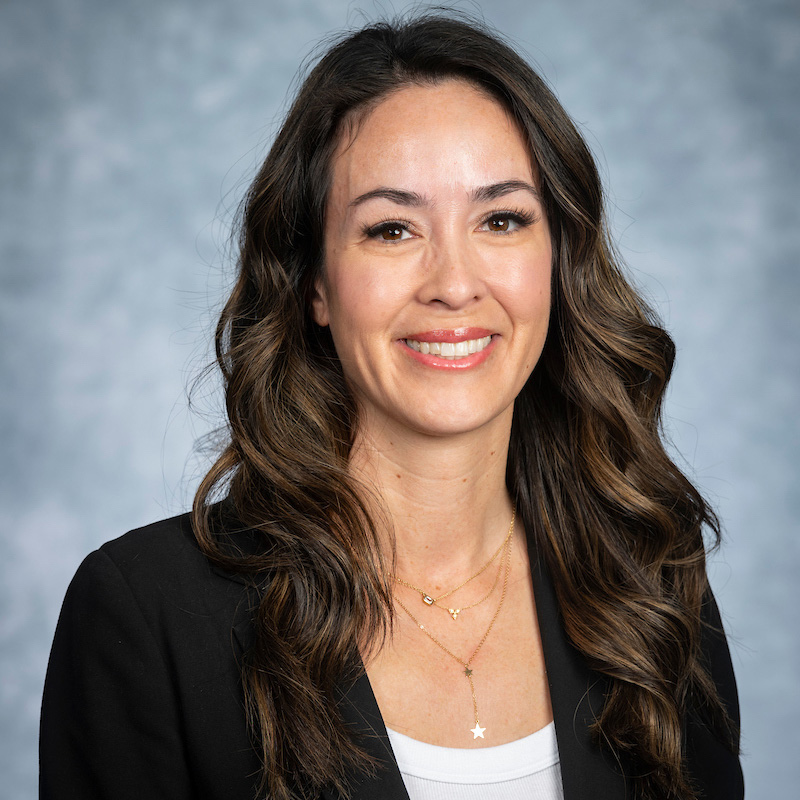 Erica Bodie, AuD
Erica Bodie, AuD
Adjunct Assistant Professor
Read Bio CloseCourses taught:
AUDE 5200 Acquisition and Development of Communicative SkillsErica Bodie, AuD, is an adjunct assistant professor in the Department of Audiology and Speech-Language Pathology at A.T. Still University’s Arizona School of Health Sciences (ATSU-ASHS). Dr. Bodie received a bachelor’s degree in speech and hearing science and a doctor of audiology degree from Arizona State University. Her professional experience includes working in outpatient clinics, hospitals, and schools. Dr. Bodie has spent a majority of her career working as a federal government audiologist. She spent five years traveling to the Native American reservations with Phoenix Indian Medical Center and more recently serving our nation’s veterans at the Department of Veterans Affairs. Dr. Bodie has worked with all age groups, diagnosing and treating hearing loss with the use of hearing instruments, assistive technologies, and communication strategies. Throughout her career, Dr. Bodie has enjoyed serving as an off-campus preceptor to residential audiology students from all over the country. She joined the adjunct faculty of ATSU-ASHS in spring 2017.
-
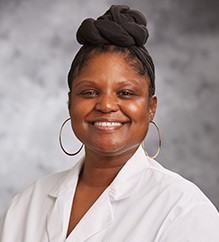 Janina Carter, AuD
Janina Carter, AuD
Adjunct Assistant Professor
Read Bio Close janinacarter@atsu.edu
Courses taught:
AUDE 5120 Infection Control and Cerumen Management (co-instructor)
Janina Carter, AuD, MS, received a bachelor of science degree in chemistry from Xavier University of Louisiana, a master of science degree in forensic science from the University of Central Oklahoma, and a doctor of audiology degree from A.T. Still University-Arizona School of Health Sciences. Upon receiving her doctorate, she worked in private practice and then decided to pursue her passion of working with the pediatric population. She worked as an educational audiologist with the public school system for several years and is now the clinical audiologist for a pediatric ENT clinic in a hospital.
-
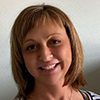 Rebekah Cunningham, PhD
Rebekah Cunningham, PhD
Adjunct Associate Professor
Read Bio Close rebekahcunningham@atsu.edu
Courses taught:
AUDE 7140 Early Intervention and Educational Audiology (co-instructor)Rebekah F. Cunningham, PhD, is an educational audiologist for the Center for Deaf and Hard of Hearing Education/Indiana State Department of Health. She is also an adjunct associate professor at A.T. Still University, teaching online and on campus. Her passion has always been pediatric-focused, whether teaching/mentoring audiology students, providing services, or overseeing programs responsible for ensuring timely and appropriate evaluations and follow up. She has served for more than 20 years on committees and task forces for local and national audiology organizations. Dr. Cunningham has taught, presented, and published on the topics of assessment and management of children with hearing loss and/or auditory processing difficulties.
-
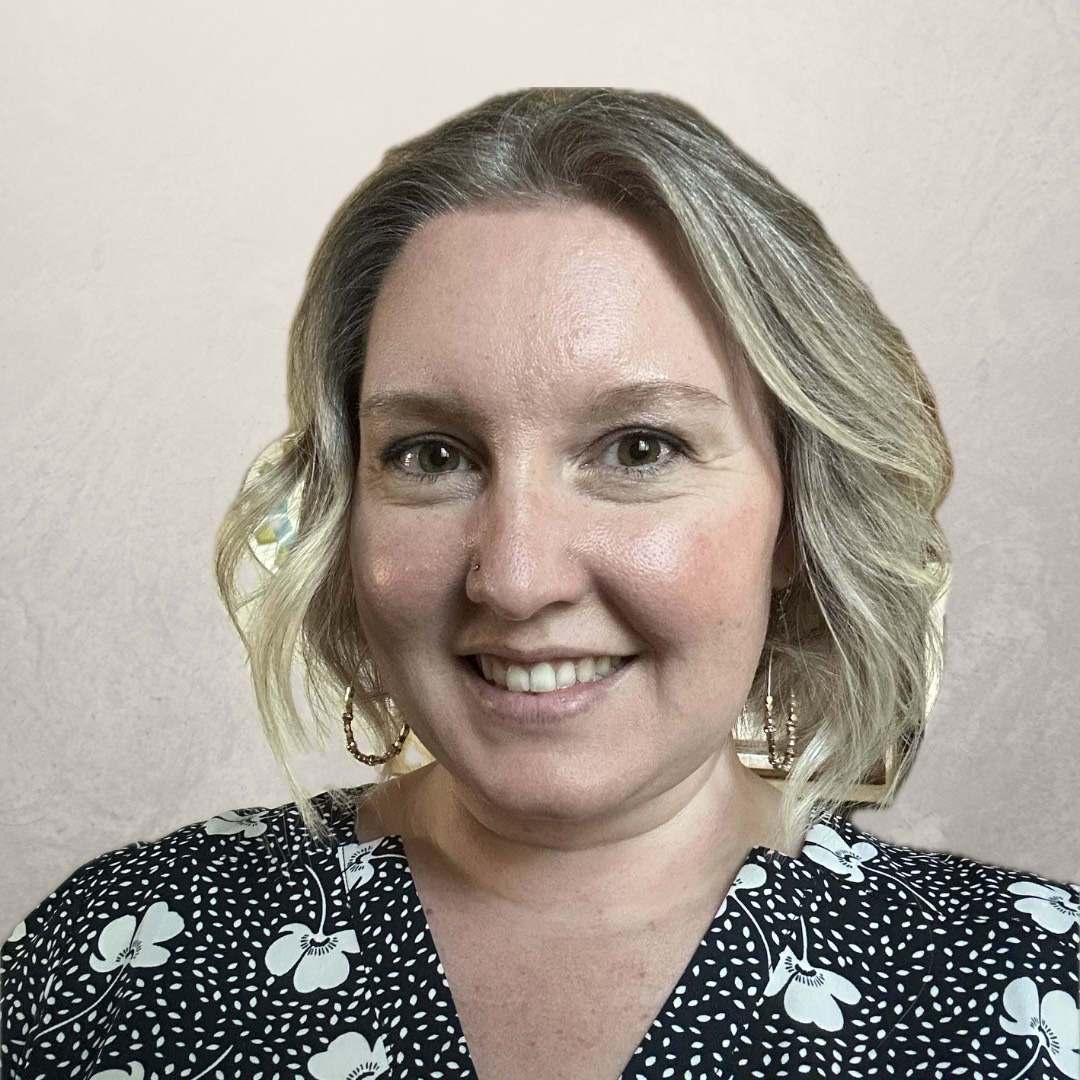 Brianne Fink, AuD
Brianne Fink, AuD
Adjunct Assistant Professor
Read Bio Close briannefink@atsu.edu
Courses taught:
AUDE 7140 Early Intervention and Educational Audiology (co-instructor)Brianne Fink, AuD, is an educational audiologist in the Paradise Valley Unified School District. She received her doctor of audiology degree from A.T. Still University in Mesa, Arizona. Dr. Fink grew up in Michigan and received her undergraduate degree in communication disorders with a minor in American Sign Language from Central Michigan University. She is the vice president of Membership and Public Relations for the Educational Audiology Association, clinical director of Special Olympics Healthy Hearing in Arizona, and clinical preceptor for ATSU’s Doctor of Audiology program. Dr. Fink is passionate about changing the lives of school-age children who have hearing loss and providing education to school staff through exceptional school-based audiological care and support. In her free time, she enjoys spending quality time with her husband and daughter.
-
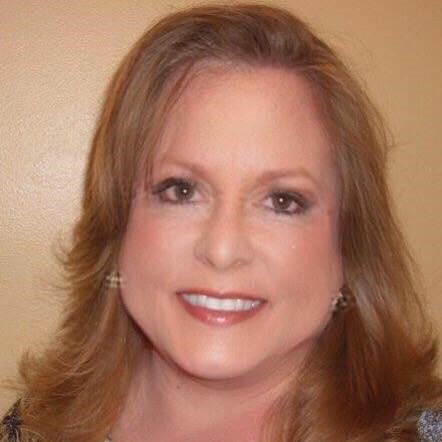 Gloria Garner, AuD
Gloria Garner, AuD
Adjunct Assistant Professor
Read Bio Close ggarner@atsu.edu
Courses taught:
AUDE 7430 Professionalism and LeadershipGloria Garner, AuD, directs the audiology program at University Health Care System in Augusta, GA. She completed her undergraduate and graduate degrees in audiology from the University of Georgia. She completed her doctoral degree in audiology in 2003 at the Pennsylvania College of Optometry’s School of Audiology. A native of Augusta, GA, the majority of her years in clinical practice were focused on improving the quality of life of individuals with hearing loss through the use of leading-edge hearing aid and cochlear implant technologies at the Medical College of Georgia. Dr. Garner has served on the adjunct faculty for the George S. Osborne School of Audiology at Salus University (formerly PCO) since 2004 and teaches online courses in ethics and aural rehabilitation. She has served as chair of the Ethical Practices Committee of the American Academy of Audiology since July of 2007. She is frequently invited to national and state meeting to speak on ethics in audiology. Dr. Garner serves on the review and editorial boards for Audiology Online and Healthy Hearing.
-
 Feigi Halberstam, AuD
Feigi Halberstam, AuD
Adjunct Assistant Professor
Read Bio Close fhalberstam@atsu.edu
Courses taught:
AUDE 7300 Speech and Language Disorders in Adults (Bridge Course)
AUDE 8120 Speech and Language Disorders in Children (Bridge Course)Feigi Halberstam, AuD, is the director of Omni Rehabilitation Center, a comprehensive outpatient rehabilitation facility in Brooklyn, New York. She obtained her MS degree in audiology from Brooklyn College and is dually certified in both speech-language pathology and audiology. Dr. Halberstam has practiced in a variety of private practices and public settings. She is an adjunct professor at Touro College as well as the Long Island University Graduate Program. She serves also as a clinical preceptor to numerous audiologists and speech-language pathologists.
-
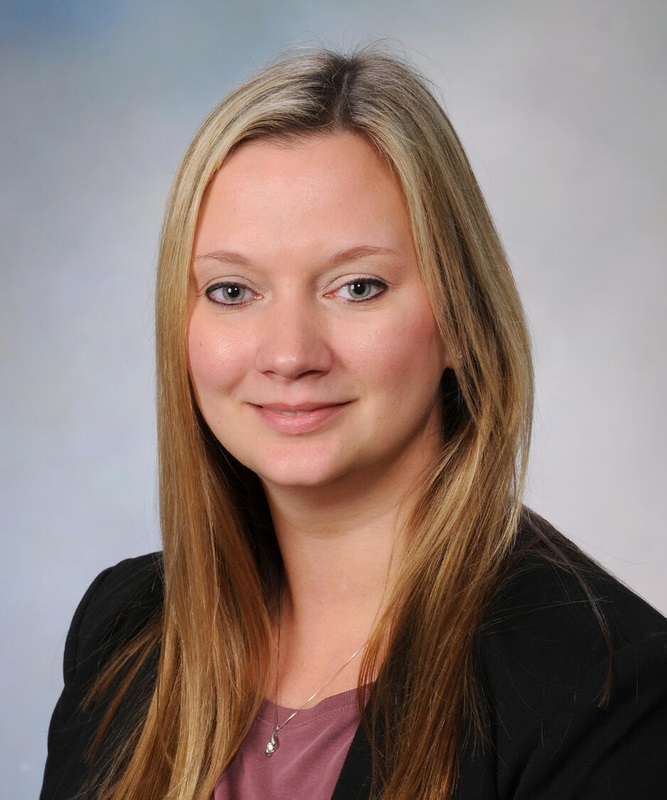 Sara Jagger, AuD, PhD
Sara Jagger, AuD, PhD
Adjunct Assistant Professor
Read Bio Close sarajagger@atsu.edu
Courses taught:
AUDE 5120 Infection Control and Cerumen Management (co-instructor)
AUDP 8110 Advanced Vestibular Evaluation and ManagementSara Jagger, AuD, PhD, serves in multiple roles, including audiology subject matter expert in the Traumatic Brain Injury Center of Excellence at General Dynamics, contracting with The American Institute of Balance (AIB), and a research collaboration with Mayo Clinic. Prior to these roles, she was a clinical audiologist with Mayo Clinic, specializing in vestibular diagnostics and treatment as well as tinnitus and otologic disorders. Dr. Jagger coordinated patient care within an interdisciplinary continuum of care with neurotology, otolaryngology, neurology, physical therapy, and rehabilitation medicine. Prior to Mayo Clinic, Dr. Jagger was the chief medical officer for the AIB clinics and a faculty member for AIB education workshops. She obtained a bachelor’s degree from The Pennsylvania State University with coursework in communication sciences and disorders, physical therapy, and neurology. Dr. Jagger received her doctor of audiology degree from A.T. Still University’s Arizona School of Health Sciences and her PhD in health sciences from Nova Southeastern University.
-
 Kenny Lam, ScD, ATC, FNATA
Kenny Lam, ScD, ATC, FNATA
Professor, Clinical Research
Read Bio Close klam@atsu.edu
Courses taught:
ASHS 6300 Research Methods and Design
ASHS 6400 Methods of Data AnalysisKenny Lam, ScD, ATC, FNATA is a professor of clinical research within the Department of Interdisciplinary Health Sciences at A.T. Still University (ATSU).
He received a bachelor of science in athletic training and a master of education in human movement from Boston University. He also completed his doctor of science degree from Boston University with a focus on movement sciences. Prior to becoming a faculty member at ATSU, Dr. Lam completed a Post-Doctoral Research Fellowship within the Center of Clinical Outcomes Studies at ATSU with a focus on patient-oriented outcomes research.
His current line of research seeks to understand the overall impact of sport-related lower extremity injuries on patient-oriented outcomes such as health-related quality of life. In addition to his faculty responsibilities, Dr. Lam serves as the vice chair of the Institutional Review Board at ATSU - Mesa campus. He is also a member of the Research Committee for the NATA Foundation, a member of the Athletic Training Research Committee of the NATA Foundation, the Chair of the Free Communications Committee for the Rocky Mountain Athletic Trainers’ Association, and an editorial board member for the Journal of Athletic Training and Journal of Sport Rehabilitation. Prior to earning his doctorate, Dr. Lam practiced as a certified athletic trainer at Boston University, Rutgers University-New Brunswick, and the Massachusetts Institute of Technology.
-
 Sarah Sparks, AuD
Sarah Sparks, AuD
Adjunct Assistant Professor
Read Bio Close sarahsparks@atsu.edu
Courses taught:
AUDE 7200 Manual Communication IISarah Sparks, AuD is a full-time educational audiologist within Baltimore City Public Schools and runs a small online business, Audiology Outside the Box, and is an adjunct instructor at multiple universities and off-campus clinical preceptor for Gallaudet University's AuD program. Every summer, she participates in a sign language-focused medical mission to the Middle East supporting deaf and hard of hearing refugee children and children living in areas of conflict. Dr. Sparks is Deaf and communicates in American Sign Language and spoken/written English. She uses 2 cochlear implants to hear.
-
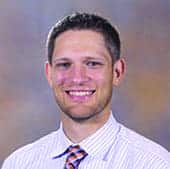 Larry Andrew Wise, AuD, MBA
Larry Andrew Wise, AuD, MBA
Adjunct Assistant Professor
Read Bio Close larrywise@atsu.edu
Courses taught:
AUDE 6420 Occupational and Environmental Hearing Conservation (co-instructor)Larry Andrew Wise, AuD, MBA, was appointed to A.T. Still University’s Arizona School of Health Sciences (ATSU-ASHS) as an adjunct assistant professor in March 2023. He received his bachelor’s degree and MBA from Troy University in 2009 and 2014, and his AuD from Auburn University in 2013. Dr. Wise has practiced in a variety of clinical locations (hospital, outpatient, military, and academia), providing clinical supervision in many of those settings. Since 2014, Dr. Wise has worked with the military as both a civilian and service member in the Army by setting up and running their Hearing Conservation Programs, while seeing active duty members, veterans, and their families.
-
-
Audiology Admissions
Prerequisite Courses & Transfer of Credit +
-
Prerequisite Courses
- Biology (e.g., biology, microbiology, anatomy, neuroscience/neuroanatomy, physiology, histology, cell biology, genetics): 3 semester/4 quarter hours
- English (e.g., writing/composition, grammar, literature): 3 semester/4 quarter hours
- Humanities - (e.g., philosophy, religion, literature, fine arts, logic, ethics, foreign language, history, music, theater) Minimum of 3 semester/4 quarter hours
- Statistics/College Algebra or higher: 3 semester/4 quarter hours
- Social Sciences (e.g., psychology, cognitive science, linguistics, sociology, anthropology, economics, political science): 6 semester/8 quarter hours
- Physical Sciences (e.g. chemistry, physics, electronics, geology, acoustics): 3 semester/4 quarter hours
* At this time, the Audiology Department will accept pass/fail prerequisite courses for which a passing grade was received from the Spring of 2019-2020 through the 2020-2021 academic year.
Transfer of Graduate Credit
The Department of Audiology and Speech-Language Pathology will consider a transfer of credit toward the Entry Level Doctor of Audiology Program for applicants in good standing from an accredited U.S. graduate school. Students may transfer up to 3 courses (9 quarter credit hours), unless otherwise specified in future articulation agreements. The applicant must be interviewed, accepted for admission, pay all appropriate fees, and submit the institution’s Application to Transfer Academic Credit form prior to receiving transfer credit.
The decision whether or not to grant a transfer of credits is dependent on:
- the content of the course
- the credit hours awarded for the course
- when the course was taken (no more than 7 years prior to the request to transfer)
- what the course will replace within the program’s curriculum, and
- the grade received (letter grade “B” or better required)
Clinical clock hours are not transferable. Due to the program’s prescribed and sequential nature, the transfer of course work credits will not result in an accelerated completion of the degree.
The Department Chair will review the Application to Transfer Academic Credit and make a determination within 30 days of receiving the completed application packet. If you have questions concerning this process, please contact the Department Chair.
-
Requirements +
-
- Applicants accepted for admission into the Doctor of Audiology Program will have earned a baccalaureate degree from an accredited undergraduate institution. All degree requirements must be completed and the undergraduate degree must be posted by July 1st. Applicants who do not meet this requirement, will not be reviewed.
- Applicants must have achieved an cumulative undergraduate grade point average of 3.0 overall (on a 4.0 scale) or a grade point in the final 60 semester hours of undergraduate study that is 3.0 (on a 4.0 scale).
- Applicants must have achieved a grade point average of 2.50 in undergraduate science courses (on a 4.0 scale).
- Applicants are expected to be computer literate and experienced in word processing. All curricula require extensive computer usage.
- For the upcoming application cycle, the Graduate Record Exam (GRE) is not required.
- Applicants must submit three letters of recommendation through CSDCAS.
- Applicants must submit a personal resume under “Other Documents” in CSDCAS or enter data in the Experiences, Achievements and Conferences Attended sections under “Supporting Information” in CSDCAS in place of a personal resume.
- Applicants must complete all prerequisite courses by the end of the quarter prior to matriculation.
- Applicants who are considered potential candidates will be required to participate in an interview. Personal interviews conducted on-site are preferred; however, interviews also may be conducted by telephone or video conferencing.
- All students are required to demonstrate proficiency in English when applying to the ATSU-ASHS. You can find information on the methods by which you can demonstrate your English Proficiency in the General Admissions section. International admissions requirements
- Applicants who wish to be considered for more than one program must submit a separate application fee, official test scores required by each program, transcripts, and references for each health science program. Acceptance to ASHS is to a specific program and is not transferable to any other program. Application materials are not transferable from one application year to another.
- Applicants are required to submit all official college or academic transcripts through CSDCAS.
- Accepted students are required to submit to a criminal background check at their own expense prior to starting the program.
Review minimal technical standards for admission and matriculation under ATSU-ASHS general admission requirements section in the University catalog.
Review minimum technology specifications to see computer requirements.
Initial offers of acceptance will be made to applicants by March 31st. Applicants will be required to accept their offers by April 15th, or they will forfeit their seat in the program.
Students are required to attend the in-person Student Affairs Orientation and the Audiology Program Orientation in Arizona, the week prior to the first day of classes.
All students admitted to the Audiology program at A. T. Still University are responsible for their own transportation to and from assigned clinical rotations. Clinical sites are established across the valley and can be more than 40 miles away from campus. The Phoenix metro area has an extremely limited public transit system that is not conducive to getting to and from clinical placements in a timely or efficient manner. Clinical rotations begin in the second week of the program.
-
Application +
-
Ready to apply?
Apply through CSDCAS and select A.T. Still University-Arizona School of Health Sciences. Applications are reviewed in the order in which they are received.
Applications should be submitted 2 to 3 weeks before the application deadline on CSDCAS so that the audiology program receives all documents prior to the initial screening and selection process.
- The application cycle will open in mid-July.
- The ATSU-ASHS Audiology priority review deadline is February 15 to be included in the initial screening and selection process.
- See prerequisite courses and more application requirements under Admissions
**All subsequent applications submitted by the final deadline of April 15 will be considered on a rolling basis until the remaining openings are filled.
For additional information contact Admissions at 480.219.6000 or admissions@atsu.edu
-
Tuition and Expenses+
-
Review tuition and fees for the Doctor of Audiology Degree program. Please note tuition and fees are subject to change.
-
Financial Aid+
-
The Entry Level and Post-Professional Doctor of Audiology program applicants should contact Enrollment Services for information regarding loans and other financial assistance. Learn more about the financial aid process and resources.
-
The ATSU Family and Culture
Doctor of Audiology Degree
The 2025-2026 Doctor of Audiology curriculum has a total of 162.5 semester credit hours for the four-year program. The course sequence and course descriptions can be viewed in the Doctor of Audiology Curriculum Guide (pdf).
You can also view the current curriculum and archives in the ATSU Catalog.
Program Info
ASHS +
- Arizona School of Health Sciences Home Page
- About Arizona School of Health Sciences
- Admissions
- Alumni and Friends
- Faculty and Staff
- New/Current Students
- Online Programs
- Certificate Programs
- Prospective Students
- Residential Programs
- Student Affairs
- Support Arizona School of Health Sciences
ASHS | ONLINE +
- Request Information
- Contact a Representative
- Apply Now
- Doctor of Athletic Training (DAT)
- Doctor of Medical Science
- Advanced Physician Assistant
- Post-Professional Doctor of Audiology
- Post-Professional Doctor of Audiology - non-degree
- Post-Professional Physical Therapy
- Post-Professional Physical Therapy - non-degree
- Certificate Programs
- Canvas Demo Course
-
Colleges & Schools +
- Arizona School of Dentistry & Oral Health
- Arizona School of Dentistry & Oral Health Home Page
- About Arizona School of Dentistry & Oral Health
- Admissions
- Alumni and Friends
- Community
- Faculty and Staff
- New / Current Students
- Programs
- Prospective Students
- Admissions
- Hometown Applicants
- Apply Now
- Enrollment Services
- Programs
- Student Affairs
- Housing
- Learning Resources
- Thompson Campus Center
- Still-Wellbeing Student Wellness Program
- By Campus | Kirksville/Mesa
- Online Students
- Contact Us
- University Catalog
- University Student Handbook
- LeaderScript
- Above & Beyond Award
- Student Affairs Blog
- Meet the Staff
- Enrollment Services
- University Catalog
- University Student Handbook
- Requirements
- Student Association
- Student Affairs
- Support Arizona School of Dentistry & Oral Health
- Arizona School of Dentistry & Oral Health
- Arizona School of Health Sciences
- Arizona School of Health Sciences Home Page
- About Arizona School of Health Sciences
- Admissions
- Alumni and Friends
- Faculty and Staff
- New/Current Students
- Departments
- Online Programs
- Certificate Programs
- Graduate Certificate in Clinical Decision-Making in Athletic Training
- Graduate Certificate in Orthopaedics
- Graduate Certificate in Rehabilitation
- Graduate Certificate in Leadership and Education
- Graduate Certificate in Sport Neurology and Concussion
- Certificate in Public Health, Emergency Preparedness & Disaster Response
- Certificate in Health Professions Education
- Certificate in Adaptive Sports
- Certificate in Corrective Exercise & Orthopedic Rehabilitation
- Certificate in Exercise and Sport Psychology
- Certificate in Geriatric Exercise Science
- Certificate in Sports Conditioning
- Certificate in Fundamentals of Education
- Certificate in Global Health Concentration
- Certificate in Leadership & Organizational Behavior
- Prospective Students
- Residential Programs
- Student Affairs
- Support Arizona School of Health Sciences
- College of Graduate Health Studies
- College of Graduate Health Studies Home Page
- About College of Graduate Health Studies
- Admissions
- Alumni and Friends
- Commitment and Values
- Faculty & Staff
- Mission
- New / Current Students
- Programs
- Request Information
- Contact a Representative
- Apply Now
- Doctor of Health Administration
- a href="/college-of-graduate-health-studies/academics/doctor-of-health-sciences-degree-online">Doctor of Health Sciences
- Doctor of Nursing Practice
- Master of Health Administration
- Master of Public Health
- Master of Public Health - Dental Emphasis
- Master of Public Health - Dental Emphasis with a Dental Public Health Residency Certificate
- Master of Science in Kinesiology
- Canvas Demo Course
- Prospective Students
- Student Affairs
- Support College of Graduate Health Studies
- College for Healthy Communities
- Kirksville College of Osteopathic Medicine
- Kirksville College of Osteopathic Medicine Home Page
- About Kirksville College of Osteopathic Medicine
- Admissions
- Alumni & Friends
- Continuing Education (CE)
- Faculty & Staff
- New/Current Students
- New and Current Student Home
- Accepted Students
- Kirksville College of Osteopathic Medicine Academic Calendar
- Student Affairs
- Enrollment Services
- Academic Affairs
- Clinical Rotations
- Kirksville College of Osteopathic Medicine-AHEC Program
- Preceptor Information
- Postdoctoral Study (Still OPTI)
- Scholarly Activity
- ATSU Portal
- Kirksville College of Osteopathic Medicine Graduation
- University Student Handbook
- Kirksville College of Osteopathic Medicine Catalog
- Programs
- Prospective Students
- Prospective Student Home
- Kirksville College of Osteopathic Medicine Academic Calendar
- Admissions
- Application Process
- Premedical Student Checklist
- Top Ten Application Mistakes
- Personal Statement Tips
- Ambassadors
- Apply Now
- Enrollment Services
- Programs
- Student Affairs
- Kirksville College of Osteopathic Medicine Catalog
- Visit the Museum
- Board Scores
- Postgraduate Placement
- University Catalog
- University Student Handbook
- Student Affairs
- Support Kirksville College of Osteopathic Medicine
- Missouri School of Dentistry & Oral Health
- School of Osteopathic Medicine Arizona
- School of Osteopathic Medicine in Arizona Home Page
- About School of Osteopathic Medicine in Arizona
- Academics
- Admissions
- Alumni and Friends
- Faculty & Staff
- New / Current Students
- Accepted Students
- Student Services
- Enrollment Services
- Academic Affairs
- Clinical Rotations
- ATSU Portal
- University Student Handbook
- School of Osteopathic Medicine in Arizona Academic Calendars
- Graduation
- Programs
- Prospective Students
- Student Affairs
- Osteopathic Medicine Center
- Support School of Osteopathic Medicine in Arizona
Looking for This +
- About ATSU
- Programs of Study
- Residential Programs
- Doctorate Level Degree Programs
- Doctor of Audiology (AuD)
- Doctor of Dental Medicine - AZ (DMD)
- Doctor of Dental Medicine - MO (DMD)
- Occupational Therapy Entry-level - AZ (OTD-E)
- Doctor of Physical Therapy (DPT)
- Doctor of Health Sciences (DHSc)
- Doctor of Occupational Therapy - Entry Level
- Doctor of Osteopathic Medicine - AZ (DO)
- Doctor of Osteopathic Medicine - MO (DO)
- Master's in Orthodontics
- Master Level Degree Programs
- Doctorate Level Degree Programs
- Online Programs
- Doctorate Level Degree Programs
- Masters Level Degree Programs
- Advanced Physician Assistant (APA)
- Master of Health Administration (MHA)
- Master of Public Health Policy (MPH)
- Master of Public Health - Dental Emphasis (MPH-DE)
- Master of Public Health - Dental Emphasis with a Dental Public Health Residency Certificate
- Master of Science in Kinesiology
- Master of Education in Health Professions Education (MEd)
- Master of Health Sciences (MHSc)
- Residency programs
- Online/Residential Blend Programs
- Continuing Education - CME
- Research
- Certificate Programs
- Graduate Certificate in Clinical Decision-Making in Athletic Training
- Graduate Certificate in Orthopaedics
- Graduate Certificate in Rehabilitation
- Graduate Certificate in Leadership and Education
- Graduate Certificate in Sport Neurology and Concussion
- Certificate in Public Health, Emergency Preparedness & Disaster Response
- Certificate in Health Professions Education
- Certificate in Adaptive Sports
- Certificate in Corrective Exercise & Orthopedic Rehabilitation
- Certificate in Exercise and Sport Psychology
- Certificate in Geriatric Exercise Science
- Certificate in Sports Conditioning
- Certificate in Fundamentals of Education
- Certificate in Global Health Concentration
- Certificate in Leadership & Organizational Behavior
- Request Information
- Contact a Representative
- Apply Now
- Request a Tour
- Residential Programs
- Tuition
- Institutional Effectiveness
- Catalog
- Colleges & Schools
- Arizona School of Dentistry & Oral Health (ASDOH)
- Arizona School of Health Sciences (ASHS)
- College of Graduate Health Studies (CGHS)
- CGHS Home Page
- Doctor of Health Education (DHEd)
- Doctor of Health Administration (DHA)
- Doctor of Health Sciences (DHSc)
- Master of Health Administration (MHA)
- Master of Public Health (MPH)
- Master of Public Health – Dental Emphasis
- Master of Public Health - Dental Emphasis with a Dental Public Health Residency Certificate
- Master of Science in Kinesiology
- Kirksville College of Osteopathic Medicine (KCOM)
- Missouri School of Dentistry & Oral Health (MOSDOH)
- School of Osteopathic Medicine in Arizona (SOMA)
- ASHS Departments
- Facilities and Clinics
- Research
- Get Involved
- Clinical Experience Sites
- Student Affairs
- Admissions
- Enrollment Services
- Student Life
- Housing
- Learning Resources and Counseling
- Wellness Programs
- Thompson Campus Center
- National Center for Native American Indian Health Professions
I Want To +
- Connect
- Learn
- About ATSU
- Osteopathic Medicine DO (Residential)
- Biomedical Sciences (MS)
- Audiology (AuD)
- Physical Therapy Orthopedic Residency
- Neurologic Physical Therapy Residency
- Doctor of Athletic Training (DAT)
- Doctor of Medical Science
- Athletic Training (MS)
- Occupational Therapy Entry-level (OTD-E)
- Master of Science in Occupational Therapy
- Physician Assistant Studies (MS)
- Doctor of Health Sciences (DHSc)
- Post-Professional Doctor of Audiology (AuD)
- Post-Professional Doctor of Physical Therapy (DPT)
- Post-Professional Physical Therapy - non-degree
- Master of Science in Kinesiology
- Doctor of Health Education (DHEd)
- Health Administration (MHA)
- Public Health (MPH)
- Master of Public Health - Dental Emphasis (MPH)
- Master of Public Health - Dental Emphasis with a Dental Public Health Residency Certificate
- Dental Medicine (DMD) - Missouri campus
- Certificate in Clinical Decision-Making in Athletic Training
- Certificate in Leadership and Organizational Behavior, Doctor of Health Sciences
- Certificate in Global Health, Doctor of Health Sciences
- Certificate in Fundamentals of Education, Doctor of Health Sciences
- Graduate Certificate in Orthopedic Rehabilitation
- Master's in Orthodontics
- Discover
- Complete & Fill Out
- Support ATSU
- Apply
- Look-Up
- Locate
- Contact
ATSU Portal Login
Program Info
ASHS +
- Arizona School of Health Sciences Home Page
- About Arizona School of Health Sciences
- Admissions
- Alumni and Friends
- Faculty and Staff
- New/Current Students
- Online Programs
- Certificate Programs
- Prospective Students
- Residential Programs
- Student Affairs
- Support Arizona School of Health Sciences
ASHS | ONLINE +
- Request Information
- Contact a Representative
- Apply Now
- Doctor of Athletic Training (DAT)
- Doctor of Medical Science
- Advanced Physician Assistant
- Post-Professional Doctor of Audiology
- Post-Professional Doctor of Audiology - non-degree
- Post-Professional Physical Therapy
- Post-Professional Physical Therapy - non-degree
- Certificate Programs
- Canvas Demo Course
-
Colleges & Schools +
- Arizona School of Dentistry & Oral Health
- Arizona School of Dentistry & Oral Health Home Page
- About Arizona School of Dentistry & Oral Health
- Admissions
- Alumni and Friends
- Community
- Faculty and Staff
- New / Current Students
- Programs
- Prospective Students
- Admissions
- Hometown Applicants
- Apply Now
- Enrollment Services
- Programs
- Student Affairs
- Housing
- Learning Resources
- Thompson Campus Center
- Still-Wellbeing Student Wellness Program
- By Campus | Kirksville/Mesa
- Online Students
- Contact Us
- University Catalog
- University Student Handbook
- LeaderScript
- Above & Beyond Award
- Student Affairs Blog
- Meet the Staff
- Enrollment Services
- University Catalog
- University Student Handbook
- Requirements
- Student Association
- Student Affairs
- Support Arizona School of Dentistry & Oral Health
- Arizona School of Dentistry & Oral Health
- Arizona School of Health Sciences
- Arizona School of Health Sciences Home Page
- About Arizona School of Health Sciences
- Admissions
- Alumni and Friends
- Faculty and Staff
- New/Current Students
- Departments
- Online Programs
- Certificate Programs
- Graduate Certificate in Clinical Decision-Making in Athletic Training
- Graduate Certificate in Orthopaedics
- Graduate Certificate in Rehabilitation
- Graduate Certificate in Leadership and Education
- Graduate Certificate in Sport Neurology and Concussion
- Certificate in Public Health, Emergency Preparedness & Disaster Response
- Certificate in Health Professions Education
- Certificate in Adaptive Sports
- Certificate in Corrective Exercise & Orthopedic Rehabilitation
- Certificate in Exercise and Sport Psychology
- Certificate in Geriatric Exercise Science
- Certificate in Sports Conditioning
- Certificate in Fundamentals of Education
- Certificate in Global Health Concentration
- Certificate in Leadership & Organizational Behavior
- Prospective Students
- Residential Programs
- Student Affairs
- Support Arizona School of Health Sciences
- College of Graduate Health Studies
- College of Graduate Health Studies Home Page
- About College of Graduate Health Studies
- Admissions
- Alumni and Friends
- Commitment and Values
- Faculty & Staff
- Mission
- New / Current Students
- Programs
- Request Information
- Contact a Representative
- Apply Now
- Doctor of Health Administration
- a href="/college-of-graduate-health-studies/academics/doctor-of-health-sciences-degree-online">Doctor of Health Sciences
- Doctor of Nursing Practice
- Master of Health Administration
- Master of Public Health
- Master of Public Health - Dental Emphasis
- Master of Public Health - Dental Emphasis with a Dental Public Health Residency Certificate
- Master of Science in Kinesiology
- Canvas Demo Course
- Prospective Students
- Student Affairs
- Support College of Graduate Health Studies
- College for Healthy Communities
- Kirksville College of Osteopathic Medicine
- Kirksville College of Osteopathic Medicine Home Page
- About Kirksville College of Osteopathic Medicine
- Admissions
- Alumni & Friends
- Continuing Education (CE)
- Faculty & Staff
- New/Current Students
- New and Current Student Home
- Accepted Students
- Kirksville College of Osteopathic Medicine Academic Calendar
- Student Affairs
- Enrollment Services
- Academic Affairs
- Clinical Rotations
- Kirksville College of Osteopathic Medicine-AHEC Program
- Preceptor Information
- Postdoctoral Study (Still OPTI)
- Scholarly Activity
- ATSU Portal
- Kirksville College of Osteopathic Medicine Graduation
- University Student Handbook
- Kirksville College of Osteopathic Medicine Catalog
- Programs
- Prospective Students
- Prospective Student Home
- Kirksville College of Osteopathic Medicine Academic Calendar
- Admissions
- Application Process
- Premedical Student Checklist
- Top Ten Application Mistakes
- Personal Statement Tips
- Ambassadors
- Apply Now
- Enrollment Services
- Programs
- Student Affairs
- Kirksville College of Osteopathic Medicine Catalog
- Visit the Museum
- Board Scores
- Postgraduate Placement
- University Catalog
- University Student Handbook
- Student Affairs
- Support Kirksville College of Osteopathic Medicine
- Missouri School of Dentistry & Oral Health
- School of Osteopathic Medicine Arizona
- School of Osteopathic Medicine in Arizona Home Page
- About School of Osteopathic Medicine in Arizona
- Academics
- Admissions
- Alumni and Friends
- Faculty & Staff
- New / Current Students
- Accepted Students
- Student Services
- Enrollment Services
- Academic Affairs
- Clinical Rotations
- ATSU Portal
- University Student Handbook
- School of Osteopathic Medicine in Arizona Academic Calendars
- Graduation
- Programs
- Prospective Students
- Student Affairs
- Osteopathic Medicine Center
- Support School of Osteopathic Medicine in Arizona
Looking for This +
- About ATSU
- Programs of Study
- Residential Programs
- Doctorate Level Degree Programs
- Doctor of Audiology (AuD)
- Doctor of Dental Medicine - AZ (DMD)
- Doctor of Dental Medicine - MO (DMD)
- Occupational Therapy Entry-level - AZ (OTD-E)
- Doctor of Physical Therapy (DPT)
- Doctor of Health Sciences (DHSc)
- Doctor of Occupational Therapy - Entry Level
- Doctor of Osteopathic Medicine - AZ (DO)
- Doctor of Osteopathic Medicine - MO (DO)
- Master's in Orthodontics
- Master Level Degree Programs
- Doctorate Level Degree Programs
- Online Programs
- Doctorate Level Degree Programs
- Masters Level Degree Programs
- Advanced Physician Assistant (APA)
- Master of Health Administration (MHA)
- Master of Public Health Policy (MPH)
- Master of Public Health - Dental Emphasis (MPH-DE)
- Master of Public Health - Dental Emphasis with a Dental Public Health Residency Certificate
- Master of Science in Kinesiology
- Master of Education in Health Professions Education (MEd)
- Master of Health Sciences (MHSc)
- Residency programs
- Online/Residential Blend Programs
- Continuing Education - CME
- Research
- Certificate Programs
- Graduate Certificate in Clinical Decision-Making in Athletic Training
- Graduate Certificate in Orthopaedics
- Graduate Certificate in Rehabilitation
- Graduate Certificate in Leadership and Education
- Graduate Certificate in Sport Neurology and Concussion
- Certificate in Public Health, Emergency Preparedness & Disaster Response
- Certificate in Health Professions Education
- Certificate in Adaptive Sports
- Certificate in Corrective Exercise & Orthopedic Rehabilitation
- Certificate in Exercise and Sport Psychology
- Certificate in Geriatric Exercise Science
- Certificate in Sports Conditioning
- Certificate in Fundamentals of Education
- Certificate in Global Health Concentration
- Certificate in Leadership & Organizational Behavior
- Request Information
- Contact a Representative
- Apply Now
- Request a Tour
- Residential Programs
- Tuition
- Institutional Effectiveness
- Catalog
- Colleges & Schools
- Arizona School of Dentistry & Oral Health (ASDOH)
- Arizona School of Health Sciences (ASHS)
- College of Graduate Health Studies (CGHS)
- CGHS Home Page
- Doctor of Health Education (DHEd)
- Doctor of Health Administration (DHA)
- Doctor of Health Sciences (DHSc)
- Master of Health Administration (MHA)
- Master of Public Health (MPH)
- Master of Public Health – Dental Emphasis
- Master of Public Health - Dental Emphasis with a Dental Public Health Residency Certificate
- Master of Science in Kinesiology
- Kirksville College of Osteopathic Medicine (KCOM)
- Missouri School of Dentistry & Oral Health (MOSDOH)
- School of Osteopathic Medicine in Arizona (SOMA)
- ASHS Departments
- Facilities and Clinics
- Research
- Get Involved
- Clinical Experience Sites
- Student Affairs
- Admissions
- Enrollment Services
- Student Life
- Housing
- Learning Resources and Counseling
- Wellness Programs
- Thompson Campus Center
- National Center for Native American Indian Health Professions
I Want To +
- Connect
- Learn
- About ATSU
- Osteopathic Medicine DO (Residential)
- Biomedical Sciences (MS)
- Audiology (AuD)
- Physical Therapy Orthopedic Residency
- Neurologic Physical Therapy Residency
- Doctor of Athletic Training (DAT)
- Doctor of Medical Science
- Athletic Training (MS)
- Occupational Therapy Entry-level (OTD-E)
- Master of Science in Occupational Therapy
- Physician Assistant Studies (MS)
- Doctor of Health Sciences (DHSc)
- Post-Professional Doctor of Audiology (AuD)
- Post-Professional Doctor of Physical Therapy (DPT)
- Post-Professional Physical Therapy - non-degree
- Master of Science in Kinesiology
- Doctor of Health Education (DHEd)
- Health Administration (MHA)
- Public Health (MPH)
- Master of Public Health - Dental Emphasis (MPH)
- Master of Public Health - Dental Emphasis with a Dental Public Health Residency Certificate
- Dental Medicine (DMD) - Missouri campus
- Certificate in Clinical Decision-Making in Athletic Training
- Certificate in Leadership and Organizational Behavior, Doctor of Health Sciences
- Certificate in Global Health, Doctor of Health Sciences
- Certificate in Fundamentals of Education, Doctor of Health Sciences
- Graduate Certificate in Orthopedic Rehabilitation
- Master's in Orthodontics
- Discover
- Complete & Fill Out
- Support ATSU
- Apply
- Look-Up
- Locate
- Contact